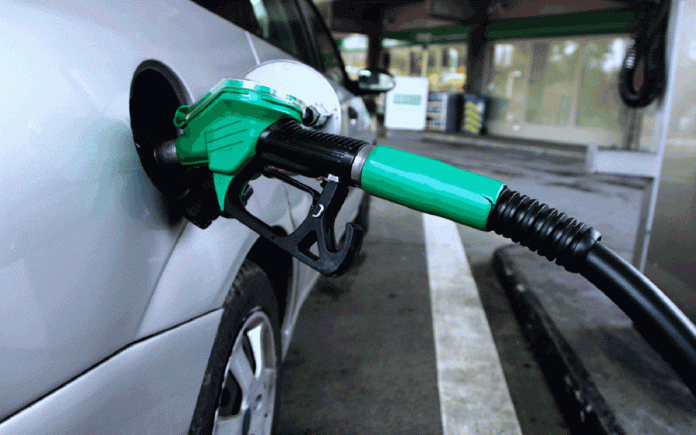The Nigerian National Petroleum Company Limited, (NNPCL) has increased the Pump Price of PMS, to N897 per litre.
There is fear that the pump price of petrol may hit N1,405/litre.
Nigeria’s downstream petroleum industry may have gone into a frenzy, following clear indications that the Federal Government may no longer sustain the cost of under-recovery, otherwise known as subsidy, due to a steady rise in petrol import bills.
Industry operators informed that it is now clear that pump price may be officially raised soon to enable the government, through the Nigerian National Petroleum Company Limited, NNPCL, to generate enough funds to settle its outstanding bills on products received on credit supply by several international dealers.
Consequently, they speculated that a compromise pump price of N1,000 per litre or more may be underway, though some of them quoted the landing cost of the product at about N1,200 per litre, excluding the cost of delivery to petrol stations.
Presently, NNPCL, according to the dealers, is no longer getting adequate supply to meet the nation’s needs, a situation which has worsened the product scarcity in the past one week while imposing excruciating pains on the transportation sector and the entire citizenry.
The shortage in supply, they further explained, was because some of the suppliers are no longer willing to deliver the product on credit. They also said that more of the products are now being smuggled out of the country.
The current transactional analysis obtained yesterday, put the landing cost, including product cost, finance cost, freight, port charges, insurance, storage and the Nigerian Midstream and Downstream Petroleum Regulatory Authority, (NMDPRA) at N1,205.52 per litre.
However, when the transportation cost, marketers’ margins and dues were added, the estimated official pump cost of the product rose to N1,405 per litre.
This indicates that at the proposed N1,000/ltr, under-recovery (subsidy) would still be significantly high, a situation which they said has put the government in a dilemma of choosing between full cost recovery (total elimination of subsidy) or a compromise position of splitting the cost between government and final consumers in a N1,000/ltr pump price.
The NNPC Ltd has already indicated that it cannot continue to sustain fuel importation at rising cost while passing the cost to final consumers is proving a difficult decision.
The nation’s oil company was permitted by President Bola Tinubu to utilise the 2023 final dividends due the federation, amounting to N2.1 trillion, to pay for the petrol subsidy.
The president also approved the suspension of the payment of 2024 interim dividends to the federation to augment NNPC’s cash flow, according to a presidency source.
In addition, the national oil company told the president it will be unable to remit taxes and royalties to the federation account for now because of subsidy payments, which it termed “subsidy shortfall/FX differential”.
NNPC’s cumulative petrol subsidy bill from August 2023 has been estimated at N6.884 trillion by December 2024, making it impossible for the company to remit N3.987 trillion in taxes and royalties to the federation account.
In June 2024, NNPC cried out to Tinubu that the subsidy payments were negatively impacting its cash flow and it was struggling to remain a “going concern”, adding that it might not be able to sustain petrol imports because of the ballooning subsidy bill, which it blamed on “forex pressure”.
Also, Mele Kyari, Group CEO of NNPC, informed the president that when the subsidy was removed in June 2023, it led to monthly savings of N400 billion to the federation, which enabled the company to remit its taxes and royalties totalling N2.032 trillion into a sequestered account at the Central Bank of Nigeria (CBN) as at January 2024.
However, in August 2023, the fuel importation costs began to rise, incurring a subsidy bill of N52.73 billion that further rose to N57.59 billion in September and N212.28 billion in October before rising further to N665.60 billion in November, following depreciation of the Naira.
Considering the situation petroleum marketers expect the government to emerge with a new fuel pump price to give direction to the market this month.
A source who opted to remain anonymous said: “We expect that the market would be driven by the forces of demand and supply in the domestic market.
“However, the government would still be guiding the market, mainly through the Nigerian Midstream and Downstream Petroleum Regulatory Authority, NMDPRA that has the responsibility to regulate as well as enforce compliance”.
NMDPRA’s Chief Executive, Engr. Farouk Ahmed did not take calls nor respond to text message, yesterday.
Oil marketers said they are not considering importation immediately because of issues and challenges, including foreign exchange, high cost of funds and uncertainty in the sector
Managing Director, 11 Plc, Adetunji Oyebanji, said: “Well, marketers were unable to import earlier when the subsidy was called off due to FOREX instability and that of the naira that was floated as at the time. These developments have hindered marketers from importing petrol.


